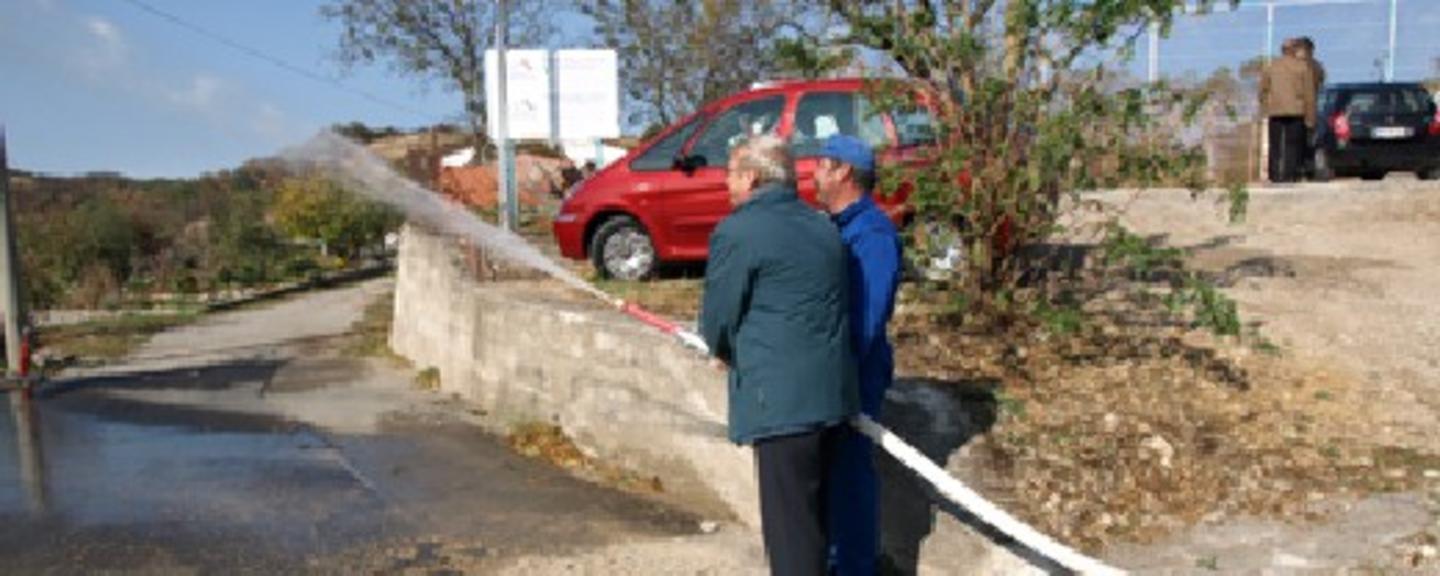In the Komen Karst at the Slovene-Italian border, a reliable water supply has been a problem for centuries. Rainwater escapes easily through the area`s limestone ground, creating a geologically and ecologically unique landscape with little surface water and unstable ground water levels. The water supply of the about hundred settlements in the area has as a consequence traditionally been dependent on the collection of rainwater or on water brought in by trucks.
While the development of municipal water works has improved the situation for most communities of the Komen Karst, the villages of Brje pri Komnu (100 inhabitants) and Lukovec (50 inhabitants) until recently remained dependent on their traditional, unreliable water supplies. This has been a problem for public health, as well as for the economic development of the two communities. Furthermore, in an arid area vulnerable to wild fires, the lack of water for extinguishing forest fires has been a major threat both to the settlements and to the local ecosystem.
Thanks to a project supported by the EEA Grants, Brje pri Komnu and Lukovec could on 18 October finally say goodbye to the days of inferior and infrequent water supply. The project, which included the construction of a water work and a reservoir, as well as a system of pipelines and pumps, connects all households in the two villages to the municipal water system. This ensures sufficient supply of clean water both for human consumption and for fire protection.
An explicit goal of the project supported by the EEA Grants is to turn the negative demographic trend of the Komen Karst. The population of the area has now stabilised at about 19,000 after years of contraction, but small communities like Brje pri Komnu and Lukovec still face an ageing and declining population. As the water situation has been a major cause for people leaving these communities, the aim is that the new supply system will contribute to bringing life back into the two villages and the surrounding areas.
